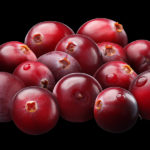By Bonnie Jenkins, Advanced Natural Wellness
Over the summer, the media spent a lot of time talking about the swine flu—the vaccine for it, the anticipated uptick in cases as we roll into fall, and who is most at risk. But here’s the good news: The CDC estimates that one million people in the U.S. have had swine flu so far, and of those infected, the government has documented only 593 deaths. This means that the swine flu is actually less dangerous than the seasonal flu—at least for most people. More good news? The swine flu doesn’t seem to be mutating.
That said, you still want to do everything you can to avoid contracting the flu—swine or otherwise. And one of the best ways to thwart the flu virus is with elderberry. A double-blind study of black elderberry extract against ten strains of the influenza virus by the Hadassah University Hospital in Jerusalem, Israel found that elderberry stops the flu dead in its tracks by significantly boosting cytokine production. Cytokines are non-antibody proteins that trigger the immune response when they come in contact with a virus. And, unlike pharmaceutical flu vaccines, elderberry stimulates the production of the immune system’s T-cells and blocks viral growth, making it effective against a wide range of influenza viruses.
MD Exposes the Hidden Danger to Your Eyes

When your eyesight starts to fail, it's a real problem. Suddenly you can't go to the grocery store... you can't get to the doctor if you have an emergency... you can't meet your friends for dinner…
Your "regular" doctor doesn't have time to keep up with the latest research. And the same goes for eye doctors. They go to school to learn how to fit you for glasses and contacts, but have no way of preventing the damage and loss of eyesight that threatens your freedom and independence.
Let me show you something that explains a LOT about how your eyes work.
In my FREE Special Report, I'll show you a HUGE, untapped resource for your eyes that safely and naturally restores clear, effortless eyesight.
Click here to get started...
Elderberry is also effective if you do find yourself with flu symptoms. Studies show that elderberry helps flush the virus out of the body by inducing both perspiration and bronchial secretions. And a recent randomized, double-blind, placebo-controlled study of 60 flu patients by the University of Oslo and the National Health Institute in Oslo, Norway found that people taking elderberry extract get relief from their symptoms four days earlier than their placebo-pumping counterparts.
But, perhaps the easiest way to protect yourself from both colds and flu is by simply washing your hands. I know, it sounds like a no-brainer. But many of us of forget the power of soap and water against germs and viruses, especially when we are in a hurry. Contact with other people throughout the day, touching contaminated surfaces, and even petting animals can cause a variety of germs to accumulate on your hands. Then by touching your eyes, nose, and mouth you can infect yourself if you don’t wash your hands often enough. Touching someone else or touching a doorknob or other surface can then spread germs to others.
Soap acts as a vehicle to trap the viruses (and bacteria) that are loosened by the act of rubbing your hands together under water. These germs can then be rinsed away by the water. And it’s still the best way to fight disease. Running a close second? Alcohol-based hand sanitizers.
The World's Quickest Solution for Ending Prostate and Urinary Misery
This has recently been revealed to be one of the only real breakthroughs in prostate health.
The seeds of a strange fruit (sometimes called "Chinese Apples") hold powerful phytonutrients that are a revolution in prostate health.
In fact, UCLA and Veterans Administration research have now proved this to be true.
Not only that, but it may be the worlds quickest solution for ending prostate misery.
Simply stated, these phytonutrients represent a huge step beyond beta sitosterol, saw palmetto, and other phytosterols alone.
Simply click HERE if you want to have fast prostate relief...restful, uninterrupted sleep...no more constant "urges to go"...enhanced virility...and optimal prostate support for life.
You should wash your hands both before and after preparing or handling food, especially when handling uncooked poultry and meat. It’s also important to lather up before eating; after changing diapers; after using the bathroom, after sneezing, coughing or blowing your nose; before and after inserting contact lenses; after touching an animal or animal waste; after handling garbage; before and after treating wounds; and before and after touching a sick or injured person.
What’s the best technique? If you are using soap and water, the Centers for Disease Control and Prevention recommends the following five steps to prevent the spread of viruses:
- Wet your hands with clean water—warm, if available—and apply soap.
- Lather by rubbing hands together; be sure to cover all surfaces.
- Continue rubbing for 15 to 20 seconds—sing “Happy Birthday” twice.
- Thoroughly rinse hands under running water to remove residual germs.
- Use paper towels or an air dryer to dry hands and then use a paper towel to turn off the faucet.
Alcohol-based hand sanitizers make a good substitute for hand-washing when soap and water isn’t available. A recent study from the University of Chicago showed that while soap-and-water hand-washing was most effective in removing influenza virus from the hands, using an alcohol-based hand sanitizer worked nearly as well. If you’re using an alcohol-based hand sanitizer, apply product to one palm, rub your two hands together, making sure to reach all surfaces, and continue rubbing until hands are dry. Preventing a week or two of misery from the flu—no matter what strain—will be well worth those 20 seconds spent lathering up.
Following a healthy lifestyle is also important. That means eating a diet full of antioxidant-rich fruits and veggies, exercising, getting enough sleep and reducing stress. These last two are especially important, say researchers at the University of British Columbia. In their study, 83 healthy young adults were monitored for stress before, during and after receiving a flu shot. The researchers also looked at a battery of different things like cigarette and alcohol use, level of physical activity and how much sleep the volunteers got. It turns out that, as unhealthy as smoking and drinking are, the two things that really undermined the participant’s immune system was a lack of sleep and high stress levels. The lesson here? Relax and stop losing sleep over all those scary (and likely false) rumors of swine flu.
References:
Barak V. The effect of Sambucol, a black elderberry-based, natural product, on the production of human cytokines: I. Inflammatory cytokines. European Cytokine Network. 2001;12:290-296.
Grayson ML. Efficacy of soap and water and alcohol-based hand-rub preparations against live H1N1 influenza virus on the hands of human volunteers. Clinical Infectious Disease. 2009;48:285-291.
Lau JT. Widespread public misconception in the early phase of the H1N1 influenza epidemic. Journal of Infection. 2009;59:122-127.
Miller GE, Cohen S, Pressman S, et al. “Psychological stress and antibody response to influenza vaccination: when is the critical period for stress, and how does it get inside the body?” Psychosomatic Medicine. 2004;66:215-223






